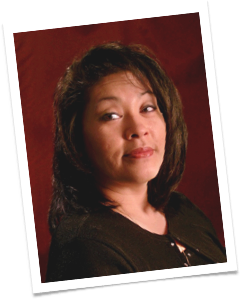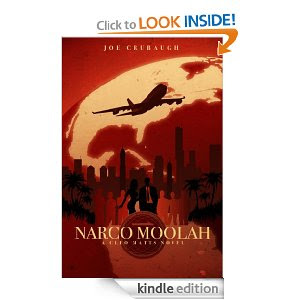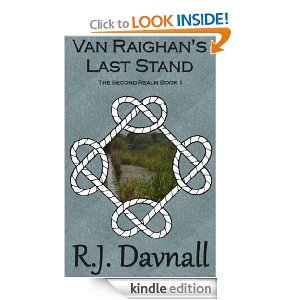Thanks for stopping by my blog. I’m pleased to introduce Lorna Suzuki, prolific self-published author, screenwriter, film consultant, and Ninja. If I was Lorna, I’d have one terrific business card printed up. This is the first interview I’ve done on my blog, and from what you’ll read below, I hope you’ll agree I saved the best for first!
 |
| Lorna Suzuki |
Your website says your previous “day job” was in law enforcement and that you are a “5th-dan practitioner and instructor of Bujinkan Budo Taijutsu.” I don’t know what that means exactly, but it sounds badass and I mean to find out in this interview. Writers often, but not always, draw from their day jobs when creating fiction. Did you? Or was your fiction a way to escape from the day job?
“Definitely. My experiences being one of only two female peace officers in the Federal Dept. of Fisheries & Oceans in all of British Columbia, way back when women were just entering this field and the RCMP [Canadian cops, for those of us south of the border], and as a diminutive female teaching martial arts in an all-male dojo, did make its way into my novels.
“It was not so much actual events that impacted me, but more the sexist/chauvinistic attitudes I dealt with stepping into these male-dominated arenas. Oh… and I guess some of the brawls the female protagonist gets into were loosely based on some of the fights I’ve been in (and no, I never started these fights, nor did I ever fight against other women, just guys who usually had too much to drink).”
 |
| Lorna kicking some dude's butt. |
In reading about Bujinkan Budo Taijutsu on your site, it sounds exotic and rare. How did you get started in it? Is it as much or more of a passion than your writing?
“I suppose writing is a passion and martial arts can be regarded as a lifestyle. I actually started in karate almost thirty years ago in an all male, full-contact club. I spent about the first three months getting severely beaten up as the guys never had a woman join and stay for more than a week or two. When they realized I was tougher than they expected and was there to learn, I gradually earned their respect. I spilled some blood and broke a few bones, but I survived.”
“After about four years, this club closed and I moved on to Bujinkan Budo Taijutsu. I much prefer this style, so much that I train and teach it now. It’s much easier on the body and you get maximum effect with minimum effort, especially when you learn pressure points. It focuses on a person’s strengths and because I’m so small, I seemed to take to the bone-breaking and muscle-tearing techniques with ease. The style incorporates six traditional samurai schools and three schools of ninjitsu. You’ll never see us in the tournament circuit as our style is strictly for self-defense.”
Writers always get asked “When did you start writing?” So, when did you start writing? (I mean fiction, and seriously. Not just goofing around.)
“I’ve been writing fiction for ten years now, but in all honesty, even after I finished the first three novels in the Imago fantasy series, I can’t say I really took my writing seriously (other than writing a seriously good story). Now, working on my 12th and probably last novel, I still don’t know if I take my writing seriously! I think if I did, it wouldn’t be fun anymore.
“Now, if you mean taking writing seriously as in making efforts to be published via a traditional publishing house, then I suppose I’ll never take it seriously as I’ve turned down multi-book publishing deals. To those who strive for traditional publication, I suspect they view me as being downright goofy (some say crazy) for not accepting a ‘real’ publishing deal when it was offered.”
I’d like to see my books made into movies. The first three books of your Imago Chronicles series have been optioned for film. Could you please tell me how you did this? Take as much time as you like.
“Many people have told me it’s because I’m a talented storyteller, that it’s the quality of my stories and my characters that these books are being adapted for the big screen. I don’t know how true this is, and I do know there are many indie authors who are way better writers than I am, but to tell you the truth, a lot of it has to do with luck.
“I was lucky I was invited to do an interview on MTV. I was lucky my book was used as a weapon during a martial arts demo and it caught the eyes of a film producer. I was lucky she bought my books, read them and fell in love with the stories and the characters. I was lucky that I had an excellent entertainment lawyer who negotiated a wonderful option agreement. I was just very lucky and grateful!”
[A Roman philosopher named Senenca is credited as saying, “Luck is what happens when preparation meets opportunity.” I suspect your luck had more to do with you being ready for such opportunities than to some whim of the Universe.]
Your site also says you are a “consultant/scriptwriter on the PBS TV series ‘West Coast Adventures.’ ” How did this position come about? Do you have to travel or can you do all your consulting and scriptwriting from home?
“My husband is a videographer and was working as a cameraman for his friend, Danny Sayson’s adventure travel series. Danny knew I had written a documentary that aired on The Biography Channel so he asked my husband Scott if I’d be interested in researching for his show, as well as writing scripts when needed. Danny seemed to like what I was doing so I was brought onto this project, whipping up scripts and factual information the host of the show could share. But traveling? No! My hubby got to travel all over and I got to view the footage!”
It looks like there are seven books in the Imago Chronicles, as well as two prequels, all published since 2002. Plus two Dream Merchant Saga books. Eleven books in ten years! And a 5th-dan Ninja, and some kind of spy or cop, and a husband and a kid: how in the world did you have time to do all that? Oh wait, I forgot that you also sold three of your books for film. Don’t you have to sleep?
“I used to function on very little sleep, but not so much anymore. I quit my day job last November to focus on writing full time and to work on the movie project as I’ve been hired as the creative consultant. But before that, I knew all about juggling my job with child, home, writing, teaching martial arts, etc. When my daughter was a baby, it meant writing after she was in bed and working until 1:00 or 2:00 in the morning, and then waking up at 5:30 or 6:00 a.m. to go off to work. My daughter now writes with me. Mind you, I still find there is not enough time in the day to get everything done and it really makes me wonder how I survived doing this for ten years.”
You’ve been writing with your daughter, Nia, and these are not little novellas—they’re full-length novels. How has that experience gone? Who has the final say in what stays and what winds up on the editing floor? Is Nia planning a full-time writing career?
“Nia started as my YA consultant because it had been a long time since I was considered a young adult. Plus, being so well read, she had her finger on the pulse of the popular, timely issues relevant to those in her age group.
“With Book Two: The Silver Sword, I proudly showed her the first completed chapter. She read it and said, ‘Mom, this is good, but it can be better.’ I pushed the laptop in her direction and said; ‘Show me!’ She plunked herself down at my computer and began typing away. If you read this book, she wrote the opening scene.
“Now she writes in every chapter and we’re finishing up our third novel, Book Three: The Crack’d Shield. Not only does Nia have a hand in writing, she reviews and helps to proofread the entire manuscript. She tells me what works, if the funny scenes are genuinely funny, or if the dialogue is of a quality that readers will feel like they’re listening in on the characters’ conversations.
“As for Nia continuing with her writing career? That is completely up to her. She’s very smart and very talented so she’ll have many opportunities available to her, more than I ever had. Like me, I hope she dares to strike out on her own path and pursues something she can be truly passionate about.”
As far as your writing career is concerned, what are you most proud of? If you’ve any regrets about it, what would you do differently?
“I know some authors out there will think I regret not rewriting my adult epic fantasy, The Imago Chronicles just to have a book deal. A few years ago, I met with Jessie Finkelstein, then an editor with Raincoast Books, the publisher of Harry Potter here in Canada. She loved the whole concept about this heroine, but the catch was I’d have to be willing to rewrite the Imago series to make it suitable for a YA audience. I told her ‘thank you, but no, I can’t do that.’
“Some writers I know are dying to get traditionally published because they view it as validation of their writing abilities. Many have told me I’m crazy for walking away from book deals like this, but I can’t say I regret remaining indie.
“Although this movie-optioned series is still struggling to find readers amongst so many thousands of titles available out there, I’m most proud that an Oscar-nominated/Golden Globe winning production team found my stories compelling enough to invest a huge amount of money and time on A Warrior’s Tale. Look for it on the big screen in the not too distant future!”
What are your plans for the next 5-10 years, if you care to share.
“After I finish writing Book Three of The Dream Merchant Saga I plan to enter deep hibernation and hide from the world for six months. Just kidding! I’ll probably retire my fiction-writing career and focus my energy on the movie project slated for full production this fall (if we hit no snafus). If the first movie is a great success, there are plans to produce Books 2 and 3 back-to-back.”
Here’s your chance to ad lib. Is there anything else I or my audience should know about you?
“For those curious about the people who are making A Warrior’s Tale into a movie, here’s the latest info I was able to share: I had the chance to finally announce the production team behind the Imago Fantasy series that had been optioned for a major motion picture trilogy!
“It’s a co-pro with indie film producer Michy Gustavia and her good friend Ari Lantos, producer at Serendipity Point Films. Ari & his father, Robert Lantos, are best known for the Oscar nominated Eastern Promises starring Viggo Mortensen and Golden Globe winners Barney’s Version and Being Julia.
“The award winning screenwriter is Michael Bruce Adams; he did a wonderful job on the screenplay. Michael has extensive experience in the film industry. His credits include writing Reach For Me starring Alfre Woodard and as the story consultant on Sepia Film’s Shine of Rainbows starring Aiden Quinn.
“Imago Chronicles: Book One A Warrior’s Tale was pitched to the film industry as LoTR & 300 meets The Last Samurai, and with such a great team behind this project, it holds a lot of promise! Full production of A Warrior’s Tale is slated for fall of 2012. Casting is currently underway.”
If this brief interview has whetted your appetite for some of Lorna’s work, you can find it all on her excellent website:
Lorna's site














